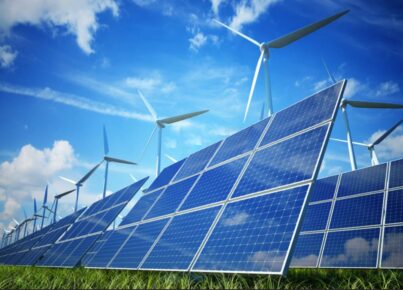The utilization of solar energy is transforming the way we power our households. With the evolution of technology and a decrease in expenses, more homeowners are pondering over solar energy as a feasible option. In this blog, we will discuss the advantages and factors to contemplate when considering solar energy for residential purposes. Solar power brings with it several benefits, ranging from lower electric bills to being environmentally sustainable. However, it is essential to comprehend the critical factors before making the transition. Let’s delve in and uncover why solar energy is a game-changer for residential properties.
How Solar Energy Works
To fully appreciate the advantages and factors involved, it’s essential to grasp how solar energy systems operate. These systems employ solar panels that are usually mounted on rooftops or in sunlit spaces to capture sunlight and transform it into practical electricity. The panels are made up of photovoltaic (PV) cells that contain semiconductor materials capable of producing direct current (DC) electricity when exposed to sunlight. An inverter is responsible for transforming the DC electricity into alternating current (AC), which is compatible with common household appliances and the electrical grid.
Benefits of Solar Energy for Residential Use
- Reduced Electricity Bills
Installing solar panels on residential properties can lead to significant cost savings on electricity bills. By generating your own electricity, you can reduce or even eliminate your reliance on the grid, resulting in substantial long-term savings, especially given the continued rise in electricity prices. Additionally, some countries and regions provide net metering programs that enable homeowners to sell excess electricity back to the grid, further offsetting their costs. - Renewable and Clean Energy Source:
Did you know that solar energy is a renewable and clean source of power? It doesn’t deplete natural resources or contribute to harmful greenhouse gas emissions, which means it’s an excellent option for homeowners who want to reduce their carbon footprint. By investing in solar energy, we can all contribute to a more sustainable future and align with global efforts to combat climate change and promote a greener planet. - Energy Independence and Security
Investing in solar panels is more than just spending money; it’s a wise long-term investment. Although the initial costs may differ, solar energy systems generally last for 25 to 30 years. As a result, homeowners can relish the benefits of cost-effective electricity bills and significant energy savings for many years to come. Additionally, solar panels can enhance the value of residential properties, making them more appealing to potential buyers in the future. - Long-Term Investment and Increased Property Value
Investing in solar panels is more than just an expense, it’s a wise long-term decision. Although the initial costs may differ, solar energy systems can last up to 25 to 30 years. This translates to significant savings on electricity bills and potential energy savings for homeowners for many years to come. Additionally, solar panels can enhance the value of residential properties, making them more appealing to prospective buyers down the road. - Government Incentives and Tax Benefits
Many governments and local authorities offer incentives and tax benefits to encourage homeowners to adopt solar energy. These incentives may include grants, tax credits, rebates, or low-interest loans. By taking advantage of these programs, homeowners can offset a significant portion of the installation costs, making solar energy more affordable and accessible.
Considerations for Residential Solar Energy
- Initial Cost and Return on Investment
When it comes to solar energy, the benefits, in the long run, are clear. But it’s crucial to take into account the initial expenses and figure out the return on investment (ROI) based on your unique circumstances. You should consider factors such as the system size, installation fees, and maintenance costs. Nevertheless, thanks to the declining costs and financing options, solar installations have become more appealing in terms of ROI in recent times. - Roof Suitability and Structural Integrity
It’s important to evaluate the condition and suitability of your roof before installing solar panels. Several factors such as roof orientation, pitch, shading from nearby trees or buildings, and roof age can affect the efficiency of your solar system. Moreover, your roof must be sturdy enough to bear the weight of the panels. Seeking advice from a professional solar installer can assist you in determining the ideal design and placement for maximum performance. - Available Sunlight and Location
When it comes to solar energy, the amount of sunlight your property receives is a critical factor to consider. Properties situated in areas with a lot of sunshine will generate more electricity than those in regions with frequent cloud cover. To determine the solar potential of your location, it’s vital to use tools such as solar calculators or seek advice from solar experts. - Maintenance and Warranty
Before installing a solar energy system, it’s important to understand the maintenance requirements and warranty terms. Although these systems require minimal maintenance, regular cleaning of the panels to remove dust and debris and occasional inspection of the system’s performance are recommended. It’s also crucial to have a clear understanding of the warranty coverage for the panels and inverter in order to protect your investment and ensure peace of mind. - Homeowner Association (HOA) Guidelines
If you belong to a homeowner association (HOA) community and plan to install solar panels, reviewing the guidelines and regulations governing such installations carefully is important. Some HOAs may have specific requirements or restrictions that you need to follow. Communicating with your HOA and obtaining approval before proceeding with the installation is recommended. - Grid Connectivity and Net Metering Policies
It is crucial to comprehend the grid connectivity and net metering policies in your locality. Net metering provides an opportunity for homeowners to reduce their electricity bills by selling extra electricity back to the grid. Take the time to learn about the regulations, tariffs, and any potential limitations or restrictions related to net metering in your area.
Conclusion
When it comes to powering homes, solar energy has a lot to offer in terms of benefits and considerations. It can help reduce electricity bills and promote long-term cost savings while also fostering environmental sustainability and energy independence. However, before making the switch, homeowners should take into account factors such as upfront costs, roof suitability, available sunlight, and maintenance requirements. By thoughtfully considering these aspects, homeowners can make an informed decision and adopt solar energy as a clean and renewable solution for their residential properties.





You must be logged in to post a comment.